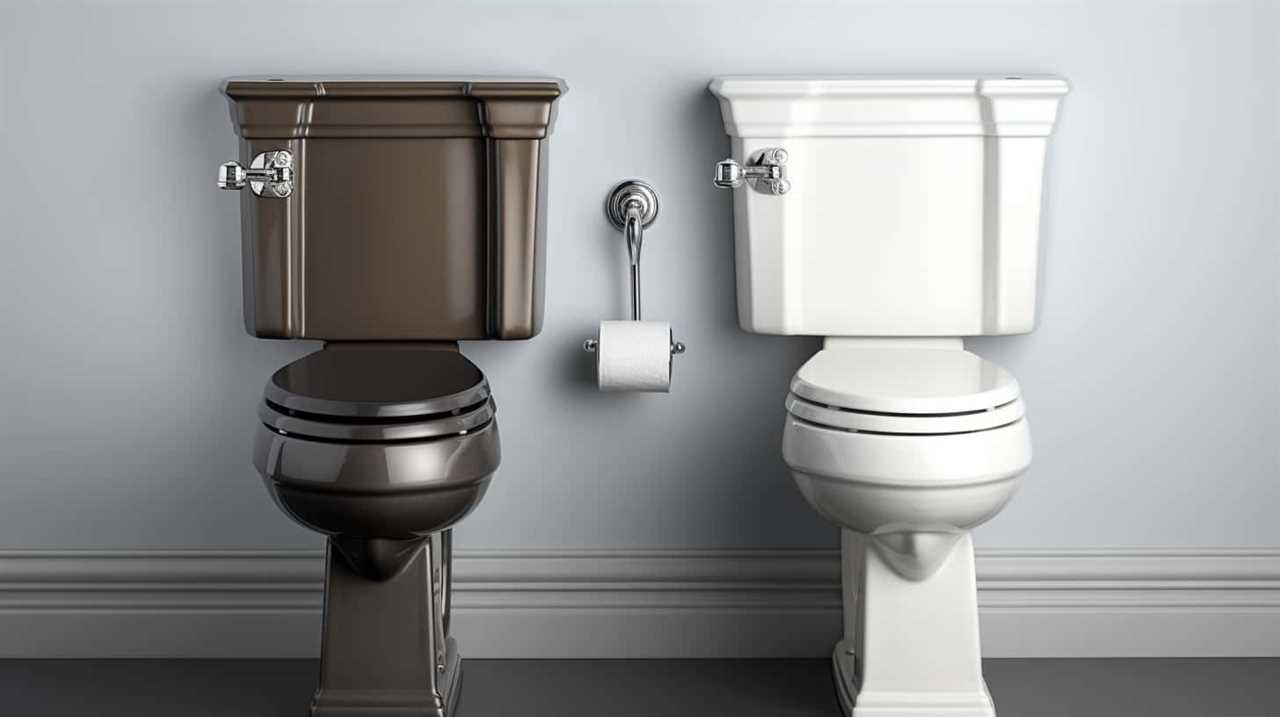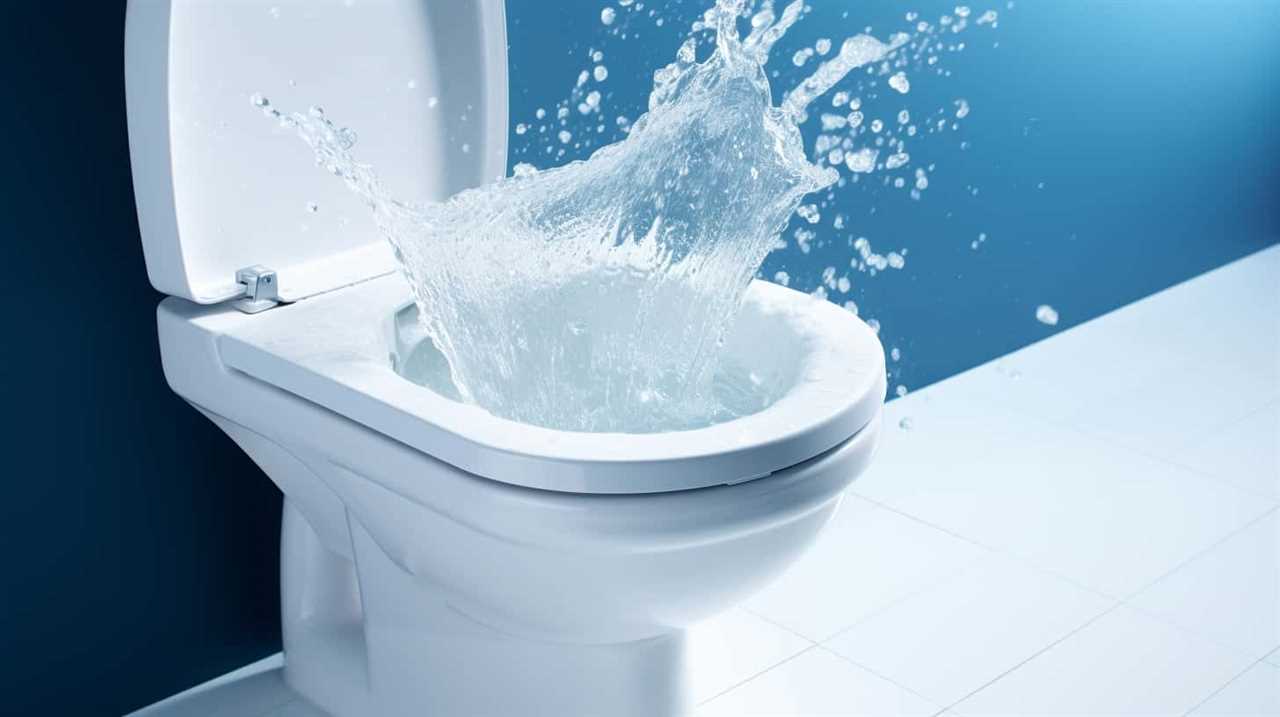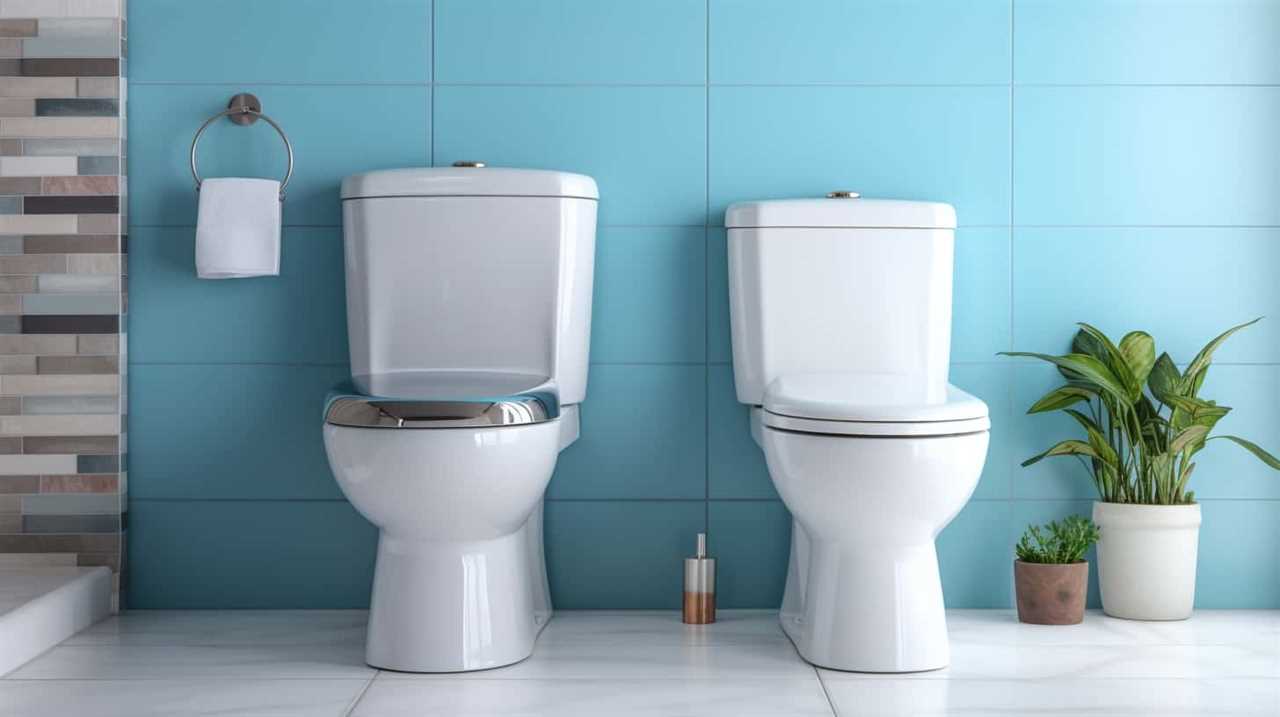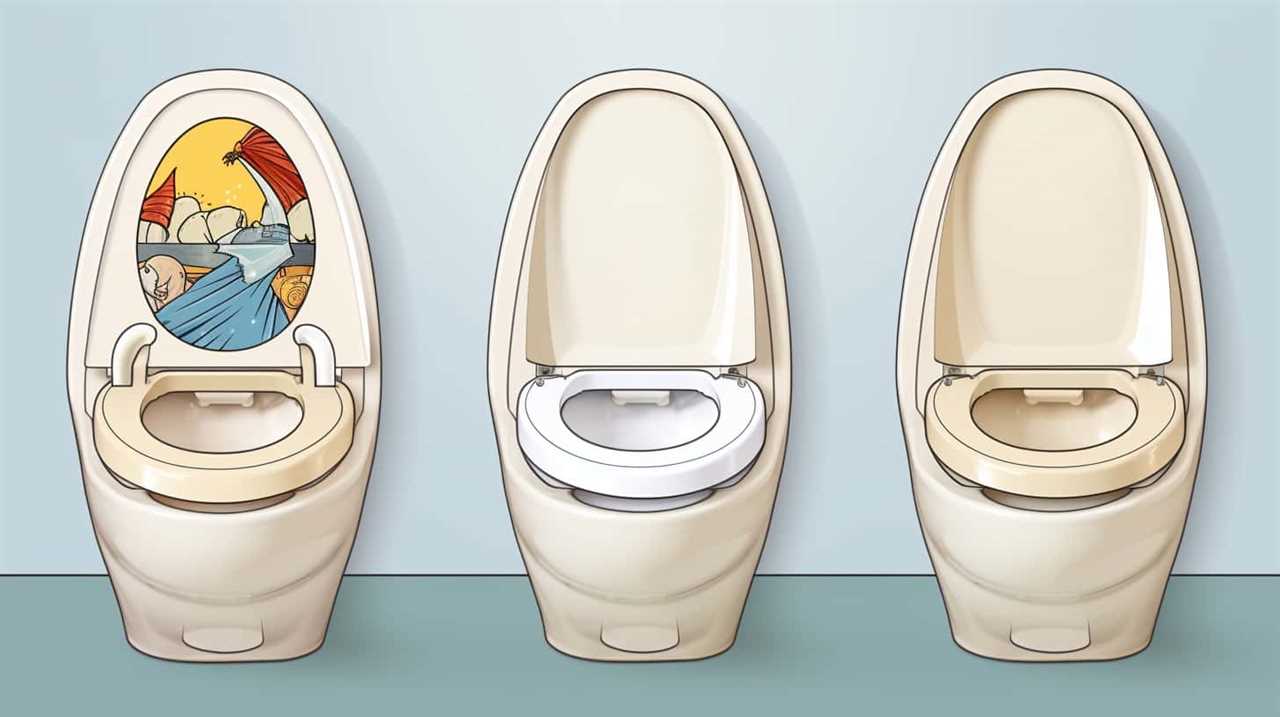Have you ever found yourself in a situation where toilet paper is scarce? We all know how frustrating it can be. In these desperate times, some might wonder if it’s possible to use Clorox wipes as an alternative.
In this article, we will explore the safety concerns, effectiveness, and potential risks of using Clorox wipes as toilet paper. We will also provide alternative options to consider when faced with a toilet paper shortage.
So, let’s dive in and find out the answers you’ve been searching for.
Key Takeaways
- Clorox wipes are not suitable for use as toilet paper due to safety concerns and drawbacks.
- Clorox wipes are primarily designed for disinfecting surfaces, not for personal hygiene.
- When toilet paper is scarce, alternatives like bidets, reusable cloth wipes, and eco-friendly toilet paper options can be considered.
- Reusable options such as cloth wipes and eco-friendly toilet paper have benefits such as cost-effectiveness, less waste, and a reduced environmental impact.
Clorox Wipes Vs Toilet Paper: a Comparison
In our comparison of Clorox wipes vs toilet paper, we find that using Clorox wipes as toilet paper isn’t recommended. When considering hygienic considerations, it’s important to note that Clorox wipes aren’t specifically designed for use on human skin, especially delicate areas like the genital region. Toilet paper, on the other hand, is specifically designed for personal hygiene purposes and is gentle on the skin. Moreover, Clorox wipes contain chemicals and disinfectants that can cause irritation and inflammation when used on sensitive areas.
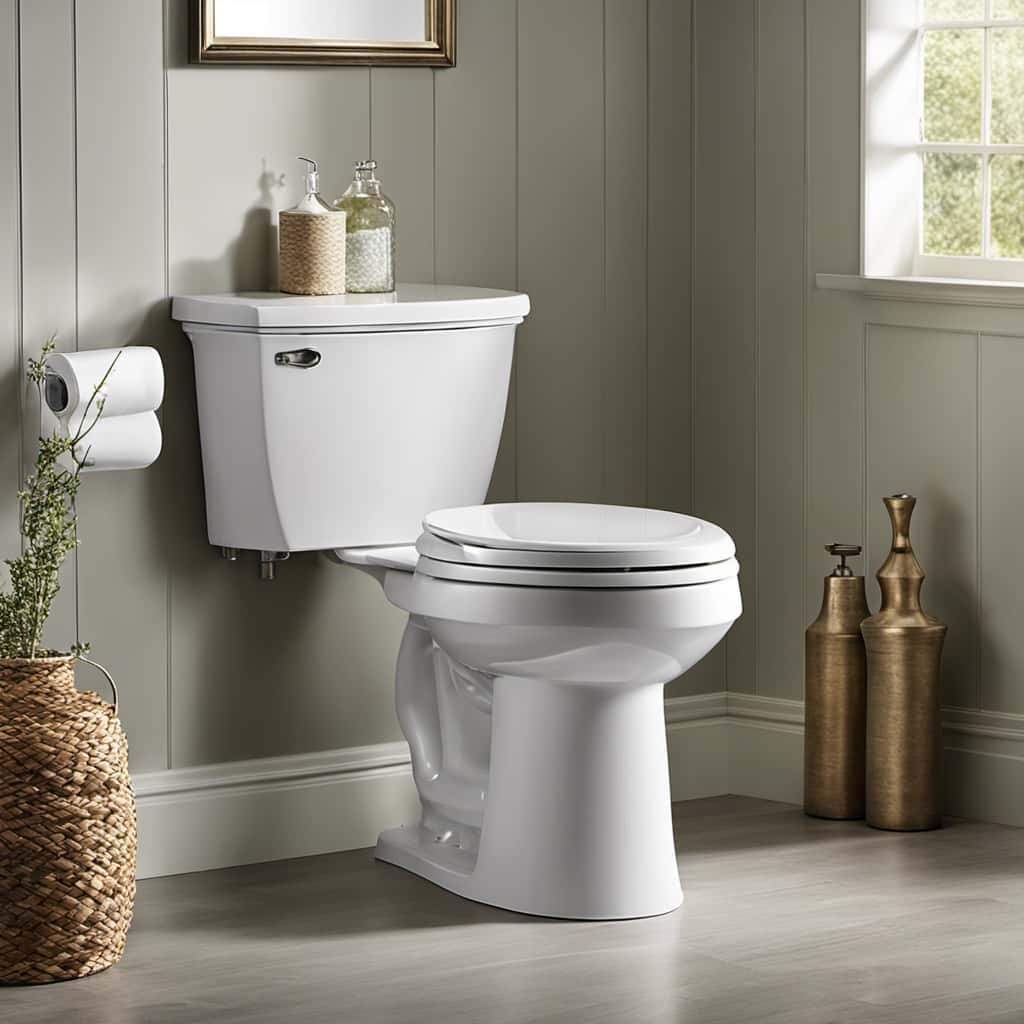
Furthermore, from an environmental impact standpoint, using Clorox wipes as toilet paper is highly discouraged. Clorox wipes are made of non-biodegradable materials and contain harmful chemicals that can disrupt ecosystems when disposed of improperly. In contrast, toilet paper is typically made from biodegradable materials and can be safely flushed down the toilet without causing harm to the environment.
Safety Concerns of Using Clorox Wipes as TP
Continuing from our comparison between Clorox wipes and toilet paper, let’s now address the safety concerns of using Clorox wipes as TP.
One of the primary toxicity concerns with using Clorox wipes as toilet paper is the presence of chemicals. While these wipes are designed for cleaning surfaces, they contain bleach and other disinfectants that may cause skin irritation, especially for individuals with sensitive skin.
Furthermore, Clorox wipes aren’t designed to dissolve in water like toilet paper, which can lead to clogging in pipes and sewage systems.
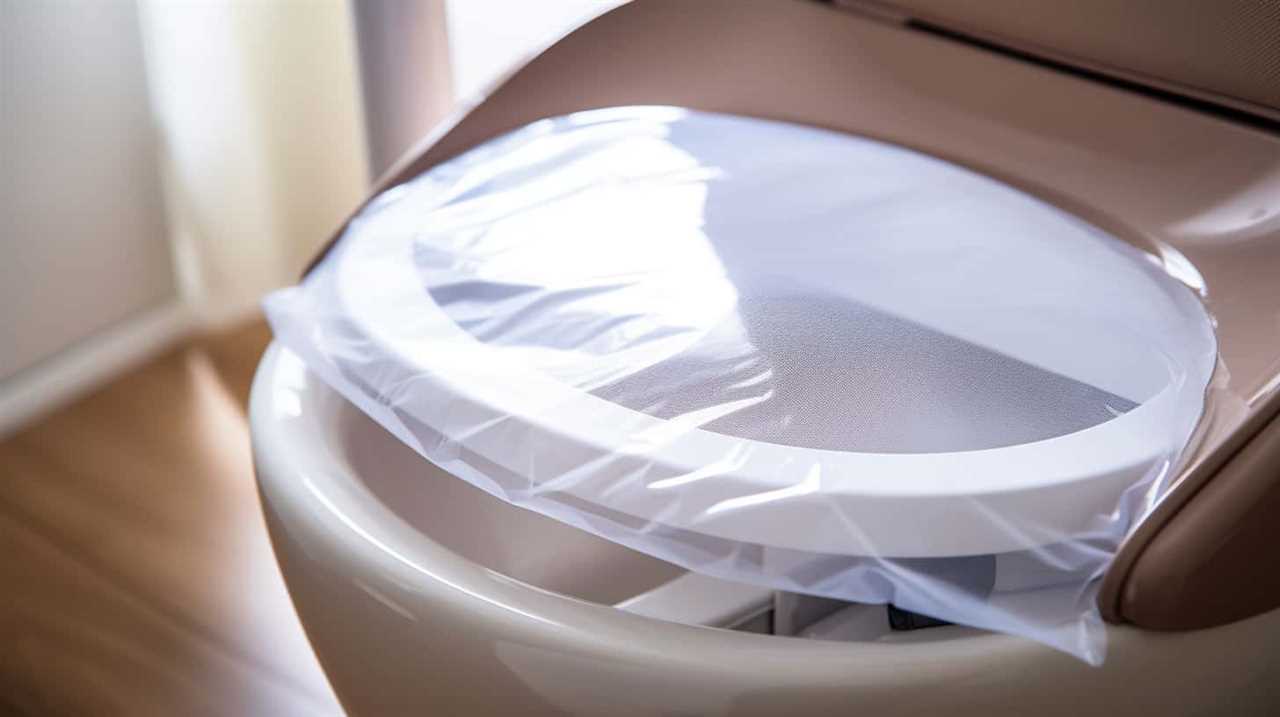
From an environmental standpoint, the use of Clorox wipes as TP contributes to increased waste and potential pollution. These wipes aren’t biodegradable and can take years to decompose.
It’s important to consider the potential health risks and environmental impact before resorting to using Clorox wipes as toilet paper.
Effectiveness of Clorox Wipes as an Alternative
Using Clorox wipes as an alternative to toilet paper has its limitations and drawbacks. While they may seem like a convenient option, it’s important to consider their effectiveness. Here are a few points to consider:
- Disinfecting properties of Clorox wipes: Clorox wipes are primarily designed for disinfecting surfaces, not for personal hygiene. Although they can kill certain germs, they may not effectively remove fecal matter or other bodily waste.
- Availability of Clorox wipes during toilet paper shortage: During a toilet paper shortage, finding Clorox wipes may also be challenging. Many stores may be sold out or have limited stock of these cleaning wipes.
While Clorox wipes can offer some level of disinfection and may be available when toilet paper is scarce, it’s important to be aware of the potential risks and drawbacks of using them as a substitute for toilet paper.
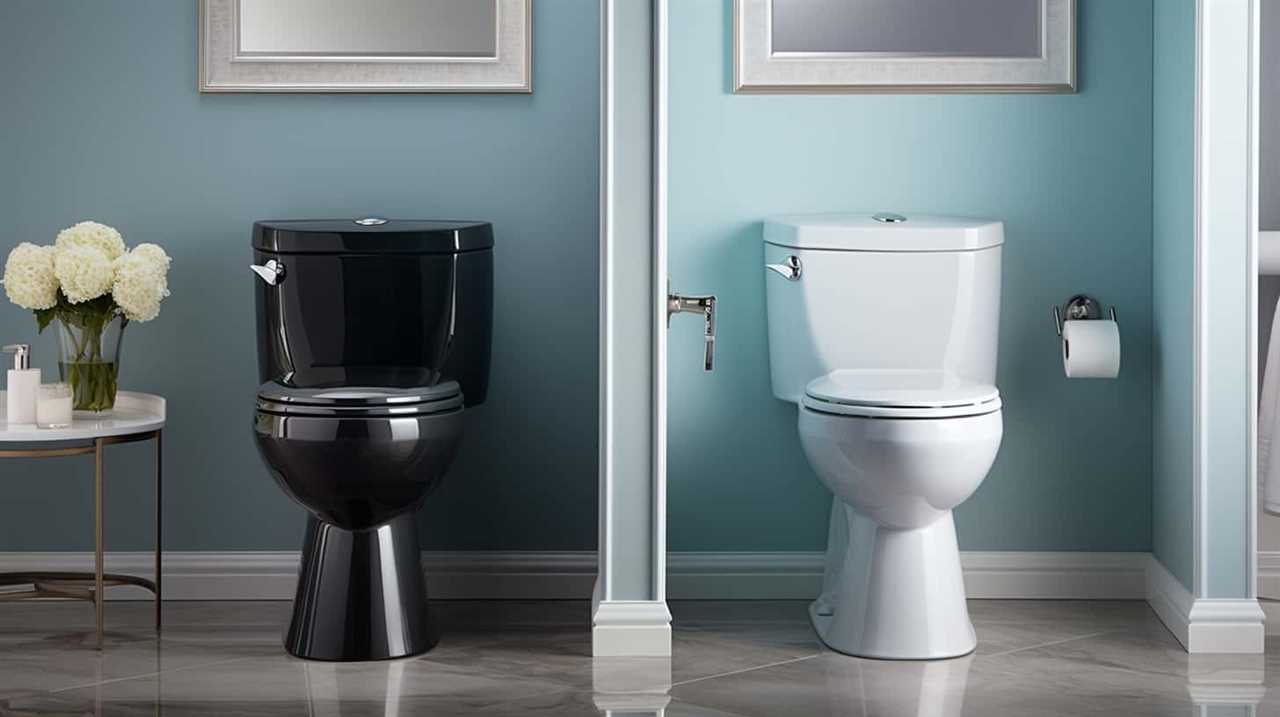
Potential Risks and Drawbacks of Using Clorox Wipes
Considering the limitations and drawbacks of using Clorox wipes as an alternative to toilet paper, we should be aware of the potential risks and drawbacks involved. While Clorox wipes may seem convenient, there are several reasons why they are not recommended for use as toilet paper.
Firstly, Clorox wipes contain chemicals such as bleach and other disinfectants that are not meant to come into direct contact with sensitive areas like the skin and mucous membranes. These chemicals can cause irritation, redness, and even chemical burns. Additionally, the texture of Clorox wipes is not designed for use on delicate areas, which can further exacerbate discomfort.
Furthermore, Clorox wipes are not flushable, meaning they can clog pipes and sewage systems. This can lead to expensive plumbing repairs and blockages in the wastewater treatment process.
In summary, while Clorox wipes may seem like a convenient option, the risks and drawbacks associated with their use outweigh any potential benefits. It is best to stick to using toilet paper specifically designed for this purpose to ensure personal hygiene and avoid unnecessary complications.
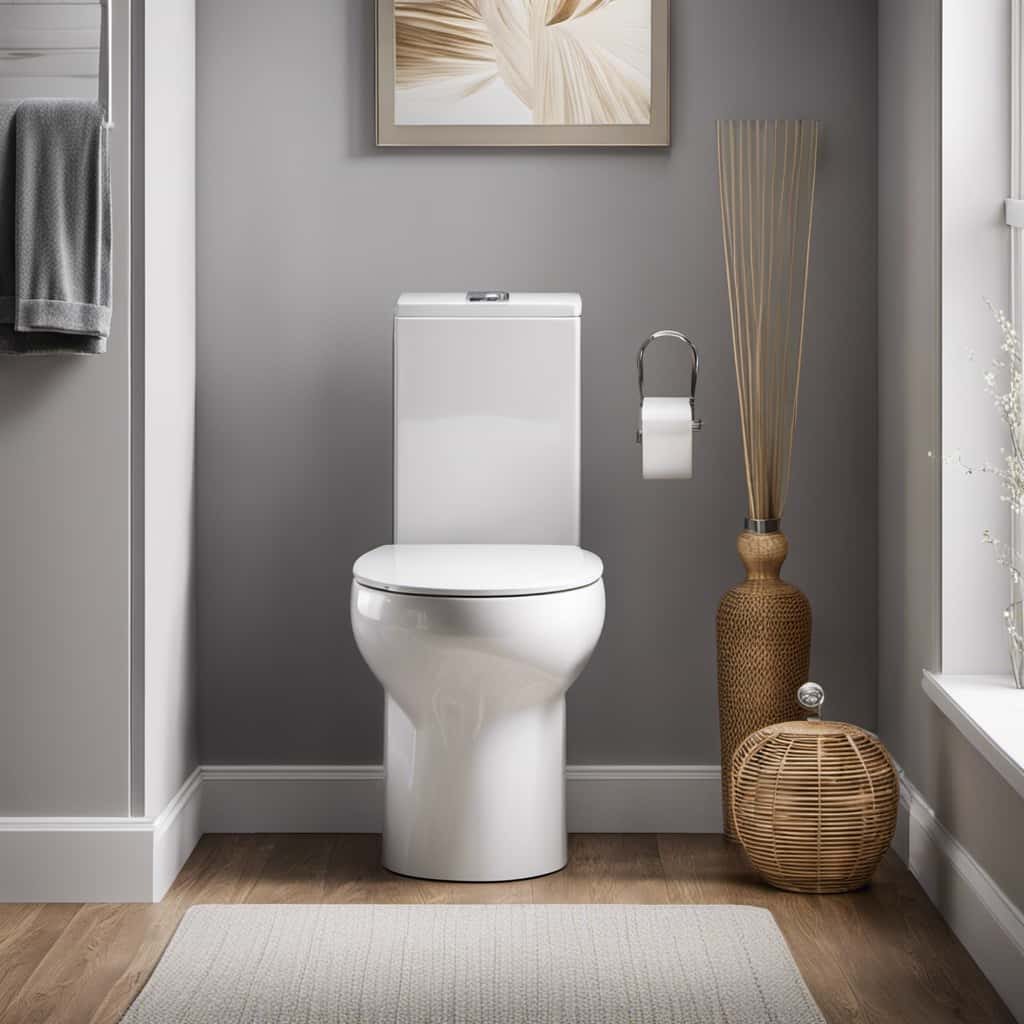
| Risks and Drawbacks of Using Clorox Wipes as Toilet Paper | Description | Impact |
|---|---|---|
| Chemical Irritation | Clorox wipes contain chemicals that can cause skin irritation and chemical burns when used on sensitive areas. | Can lead to discomfort, redness, and potential long-term damage. |
| Unsuitable Texture | The texture of Clorox wipes is not designed for use on delicate areas, which can cause discomfort and further irritation. | Can result in pain, itching, and potential skin damage. |
| Non-Flushable | Clorox wipes are not flushable and can clog pipes and sewage systems. | May lead to costly plumbing repairs and blockages in wastewater treatment processes. |
Alternatives to Consider When Toilet Paper Is Scarce
When toilet paper is scarce, we can explore alternative options to ensure personal hygiene. Here are some eco-friendly toilet paper alternatives and DIY toilet paper substitutes to consider:
- Bidet: Install a bidet attachment to your toilet for a hygienic and eco-friendly option. It uses water to clean, reducing the need for toilet paper.
- Cloth wipes: Use reusable cloth wipes made from soft, absorbent materials like bamboo or cotton. After use, simply wash and reuse them, reducing waste.
- Family cloth: This is a reusable alternative to toilet paper, where small washable cloths are used by each member of the family. They can be washed and reused, minimizing environmental impact.
Frequently Asked Questions
Can I Flush Clorox Wipes Down the Toilet?
No, flushing wipes, including Clorox wipes, down the toilet is not recommended. They can clog pipes and cause sewage backups. If you’re looking for alternative toilet paper options, consider using biodegradable wipes or bidets.
Can Clorox Wipes Cause Irritation or Damage to Sensitive Skin?
Using Clorox wipes as toilet paper is not recommended. While they may be effective at disinfecting surfaces, they are not designed for personal use and can cause irritation or damage to sensitive skin.
Can Using Clorox Wipes as Toilet Paper Lead to Plumbing Issues?
Using Clorox wipes as toilet paper can lead to plumbing concerns due to their non-flushable nature. Additionally, it has a negative environmental impact as these wipes do not break down easily and can cause blockages in sewage systems.
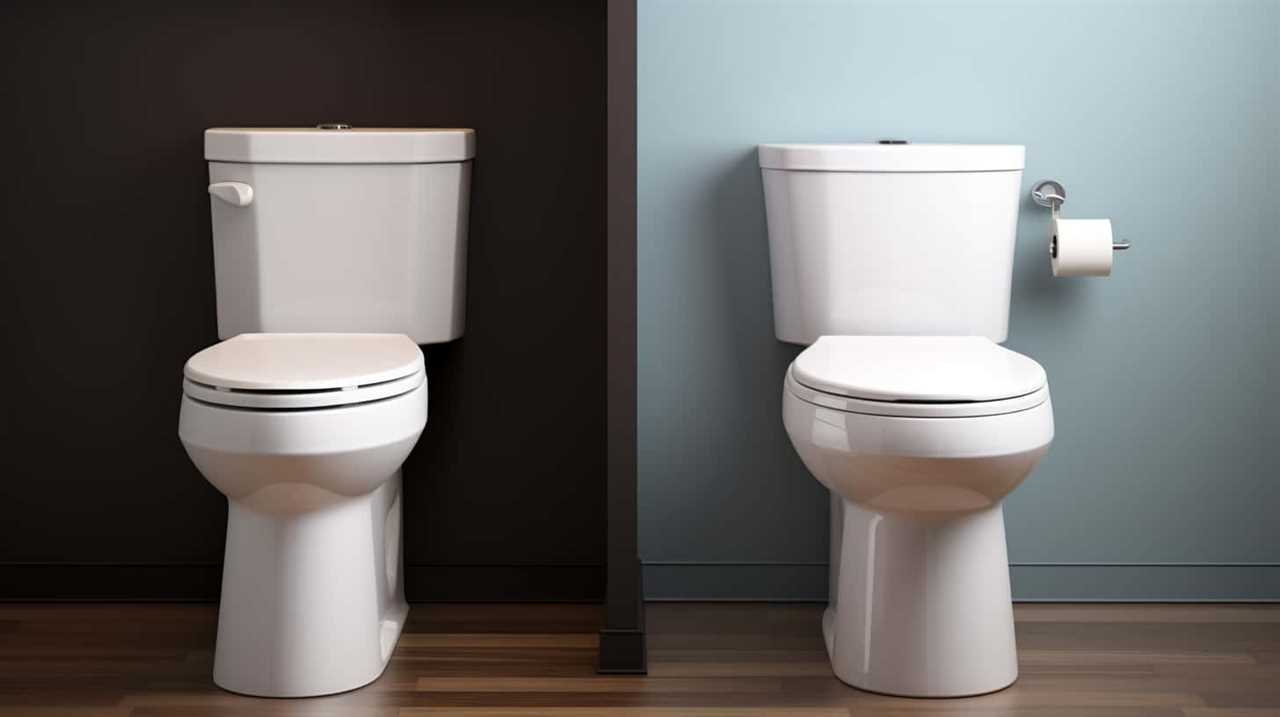
Can Clorox Wipes Be Used on Bidets or Other Alternative Toilet Fixtures?
Alternative toilet hygiene methods can be effective and efficient, but it’s important to understand the compatibility of Clorox wipes with bidets or other fixtures. We’ll discuss the effectiveness of using Clorox wipes on bidets and provide technical information.
Can Clorox Wipes Be Safely Used by Individuals With Allergies or Respiratory Conditions?
Using Clorox wipes during a pandemic is effective for disinfecting surfaces. However, individuals with allergies or respiratory conditions should be cautious due to the strong chemicals. Alternatives to Clorox wipes include disinfectant sprays or wipes that are hypoallergenic and fragrance-free.
Conclusion
In conclusion, while it may be tempting to use Clorox wipes as a substitute for toilet paper during times of scarcity, it’s important to consider the potential risks and drawbacks.
The effectiveness of Clorox wipes in this context is questionable, and safety concerns shouldn’t be taken lightly.
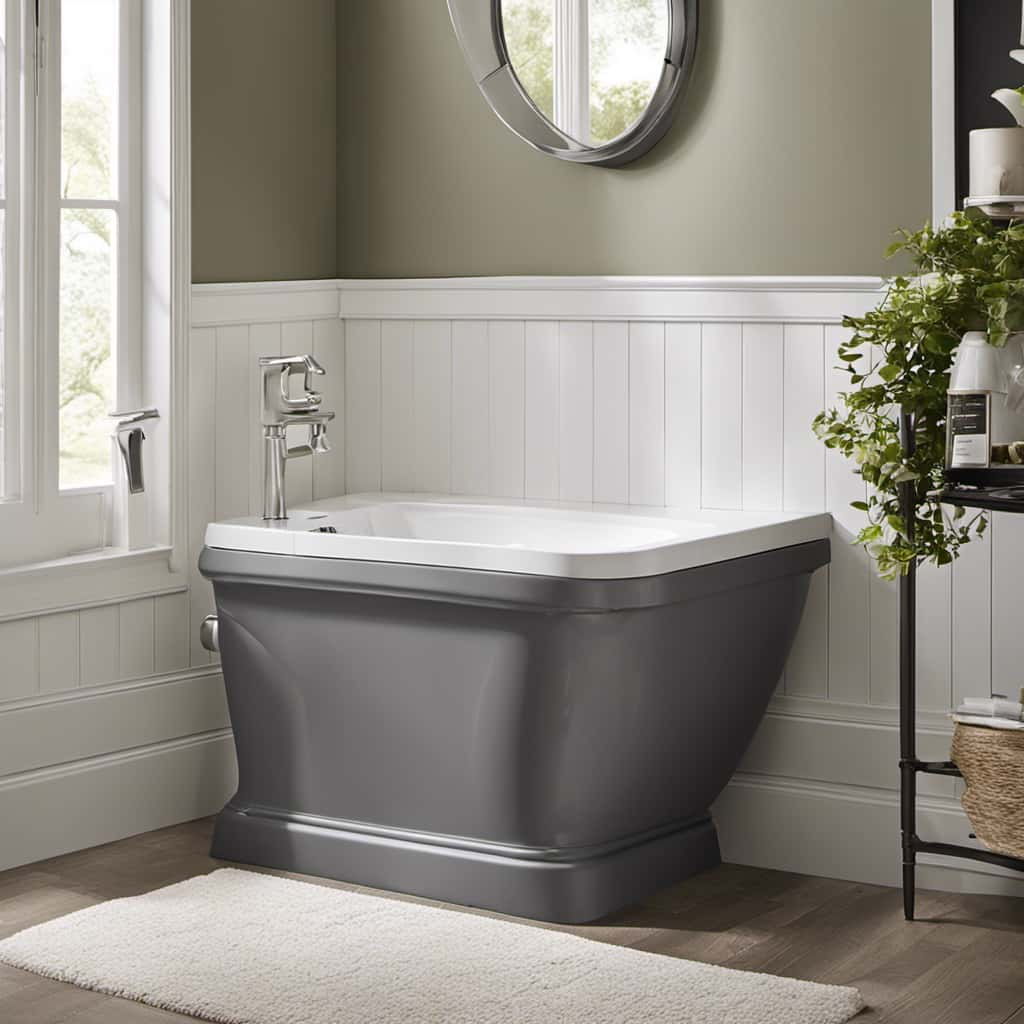
Instead, exploring alternative options, such as bidets or reusable cloth wipes, may provide a more sustainable and hygienic solution.
Remember, irony may lead to unexpected consequences, so let’s approach this topic with caution.
